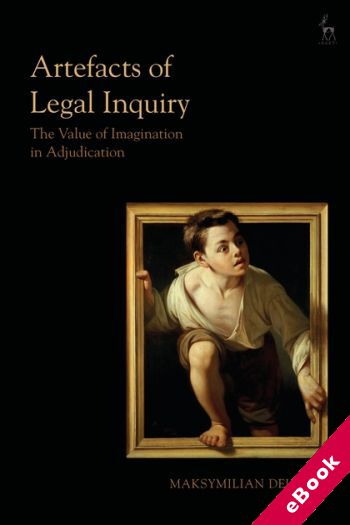
The device(s) you use to access the eBook content must be authorized with an Adobe ID before you download the product otherwise it will fail to register correctly.
For further information see https://www.wildy.com/ebook-formats
Once the order is confirmed an automated e-mail will be sent to you to allow you to download the eBook.
All eBooks are supplied firm sale and cannot be returned. If you believe there is a fault with your eBook then contact us on ebooks@wildy.com and we will help in resolving the issue. This does not affect your statutory rights.
What is the role and value of legal fictions, metaphors, hypothetical narratives and personification in legal thought? This book develops a theoretical framework to answer that question. Legal language, it is argued, contains artefacts - fabricated forms that capture our attention by signaling their own artifice and invite us to imagine. To imagine, in turn, is to enter into a distinct epistemic frame where we temporarily suspend certain epistemic commitments and participate actively along a spectrum of affective, sensory and kinetic involvement.
The artefacts of legal language and related processes of imagination are crucial to legal thought at many levels, including the level of the individual judge, the level of interaction in the courtroom, and the level of the resourcefulness of law over time. Drawing on a broad range of theoretical traditions - including philosophy of imagination and emotion, the theory and history of rhetoric, and cognitive literary studies - this book offers an interdisciplinary model and defence of the importance of imagination in adjudication. The book also situates the model of artefacts and related processes of imagination in the history of twentieth century theories of legal reasoning and offers resources and activities for the education of imagination in law schools.